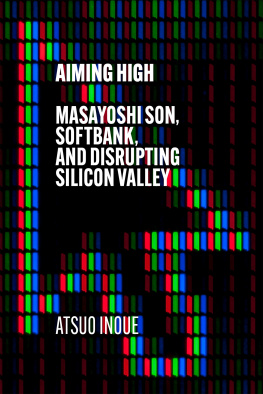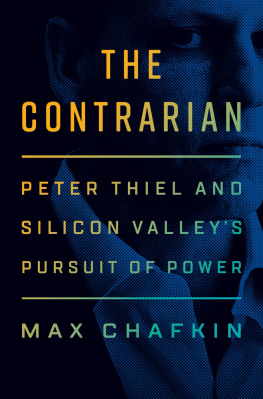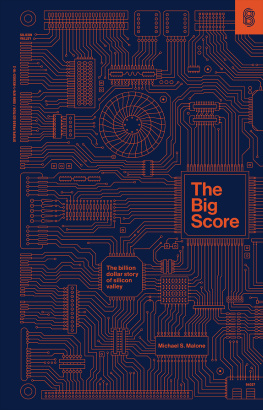

Published by Repeater Books
An imprint of Watkins Media Ltd
Unit 11Shepperton House
89-93 Shepperton Road
London
N1 3DF
United Kingdom
www.repeaterbooks.com
A Repeater Books paperback original 2020
Distributed in the United States by Random House, Inc., New York.
Copyright Wendy Liu 2020
Wendy Liu asserts the moral right to be identified as the author of this work.
ISBN: 9781912248704
Ebook ISBN: 9781912248711
All rights reserved. No part of this publication may be reproduced, stored in a retrieval system, or transmitted, in any form or by any means, electronic, mechanical, photocopying, recording or otherwise, without the prior permission of the publishers.
This book is sold subject to the condition that it shall not, by way of trade or otherwise, be lent, re-sold, hired out or otherwise circulated without the publishers prior consent in any form of binding or cover other than that in which it is published and without a similar condition including this condition being imposed on the subsequent purchaser.
Printed and bound in the United Kingdom by TJ International Ltd
CONTENTS
This book is memoir. It reflects the authors present recollections of experiences over time. Some names and characteristics have been changed, some events have been compressed, and some dialogue has been recreated.
ZERO: PROLOGUE
Opposing tech innovation is punishing the poor by slowing the process by which they get things previously only affordable to the rich.
Marc Andreessen, co-founder of Silicon Valley venture capital firm Andreessen Horowitz, in tweet posted on June 4, 2014 (since deleted)
Silicon Valley is more than a region in northern California that has become synonymous with the high-tech industry. It is a dream.
It is the dream of a world with new rules and new rulers, based on the principles of meritocracy and efficiency and hacking your way to the top. It is the dream of the win-win: innovation that generates profit through frictionless experiences and synergistic efficiencies, not exploitation. It is the dream that a hacker playground with unimaginable wealth and minimal outside supervision is indisputably making the world a better place.
But what may be a dream for a select few is steadily becoming a nightmare for everyone else.
There was a time when I believed in Silicon Valley unquestionably. As a teenager, I poured my free time into honing my programming skills and soaking up hacker culture; my idols were startup founders and open source programmers. Even as I slowly came to terms with the industrys numerous problems how toxic it could be for women and minorities, the absurd levels of wealth directed at spurious causes I still saw it as deserving of its vaunted role. I genuinely believed that the industry was doing good in the world.
Soon, my belief in it had become part of my identity. After university, I plunged myself into a startup in the hope of attaining some nebulous idea of Silicon Valley success. The use cases of our product bored me, but the technical problem was captivating, and I directed all my energy toward dealing with the numerous technical fires. I was confident that we would eventually succeed and then everything would be worth it.
And then one day I was no longer sure. My certainty in my personal trajectory faded, first slowly and then all at once. The fires still raged, but putting them out no longer felt pressing. The startup I had devoted my waking hours to collapsed in a blaze of mediocrity. I watched it burn, smoulder. The remnants of the misguided dream Id been chasing crumbled into ashes.
In the meantime, the rest of the world was crumbling, too. Donald Trump had just been elected President of the United States, and in my shocked dismay I made an effort to catch up on everything I hadnt noticed while submerged in my failing startup. Everywhere I looked, things seemed dark. One ecological catastrophe after another. A housing crisis in nearly every major city. People in the richest country in the world dying because they couldnt afford insulin. All of which seemed like the morbid symptoms of a decaying socioeconomic order.
Meanwhile, the tech industry was in the spotlight for all the wrong reasons: a cascade of sexual harassment lawsuits; billion-dollar companies revealed to be built on fraud; founders climbing up the billionaire charts while their precarious workforce sank deeper into poverty. The industry Id assumed was the solution was clearly part of the problem, and I started to see my past choices in a new light. My startup looked less like an audacious attempt to build something useful and more like an act of myopic self-aggrandisement, one that I found hard to justify once I began paying attention to the rest of the world. Creating derivative software to help brands better understand their customers seemed like a poor use of my limited time on this burning planet.
In my disillusionment, I sought out answers. I wanted to understand why everything felt like it was falling apart, and why I was only just starting to see it. At first, I didnt really know where to look all I had were vague doubts about my worldview but eventually, I stumbled upon an analytical framework that made sense. There were others thinking about the same questions, and their answers helped me connect the dots in a way I had never before considered. Finally I had a coherent analysis which allowed me to situate my burgeoning scepticism of the tech industry within a larger critique of capitalism.
Why had I been such a fervent believer in Silicon Valley in the first place? I could come up with all sorts of justifications, but ultimately it was because I knew Silicon Valley had a comfortable spot in the economic hierarchy. And from this soil of economic reality sprouted an entire tree of self-serving rationalisations about who was deserving and who was not, which I am only now beginning to cut down.
This is the book I wish Id had when I started to become disillusioned with my startup, and soon, with startups, period. This is the book I wish Id had when I began to question whether the tech industrys massive riches were deserved, and whether it was moral for me to complacently take a spot within it. This is the book I wish Id had when I stopped believing Silicon Valleys legitimating myths the revenge-of-the-nerds fairytales, the straight-faced claims of meritocracy, the propaganda about mission-driven companies solving the worlds problems and sought a new narrative.
This is a book about technology, but it is also a book about capitalism that is, the downside of capitalism. Rather than treating capitalism as a wondrous force for unleashing innovation, this book focuses on the negative consequences of technological development under capitalism: the harmful tendencies that are magnified, and the alternatives that are lost.
I realise this will be a controversial perspective. The dominant narrative within Silicon Valley is that technology is inseparable from capitalism, and so innovation requires letting the free market run roughshod over every aspect of our lives. Anyone who suggests otherwise comes off as a Luddite, opposed to much-needed progress due to malice or ignorance. Youre either in favour of the tech industry bulldozing over anyone who stands in its way or youre against innovation entirely.
This is a convenient narrative for Silicon Valley, which then gets to frame itself as synonymous with progress: Silicon Valley is the harbinger of the future, and anyone who opposes it is stuck in the past. But the choice of being pro-tech industry or anti-tech is a false dilemma. The tech industry in its current form with billion-dollar corporations, venture capitalists, and a few boy geniuses running the show is not the only way of developing technology. In fact, the present industrial model is a betrayal of the liberating possibilities of technology, as technology that should serve the public good is instead locked up within corporations for private gain. Whatever progress is represented by Silicon Valley, its certainly not the sort we should all be rooting for.
Next page





